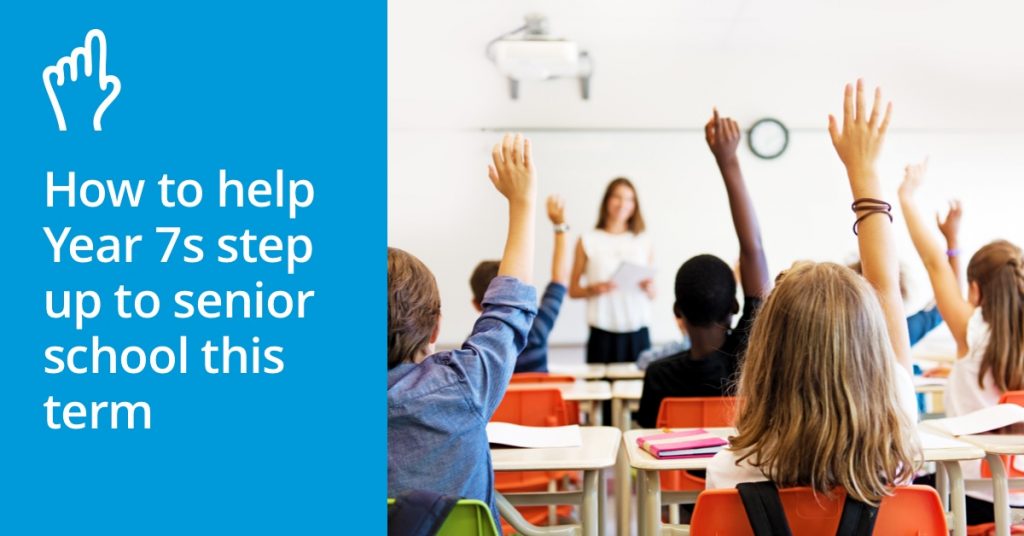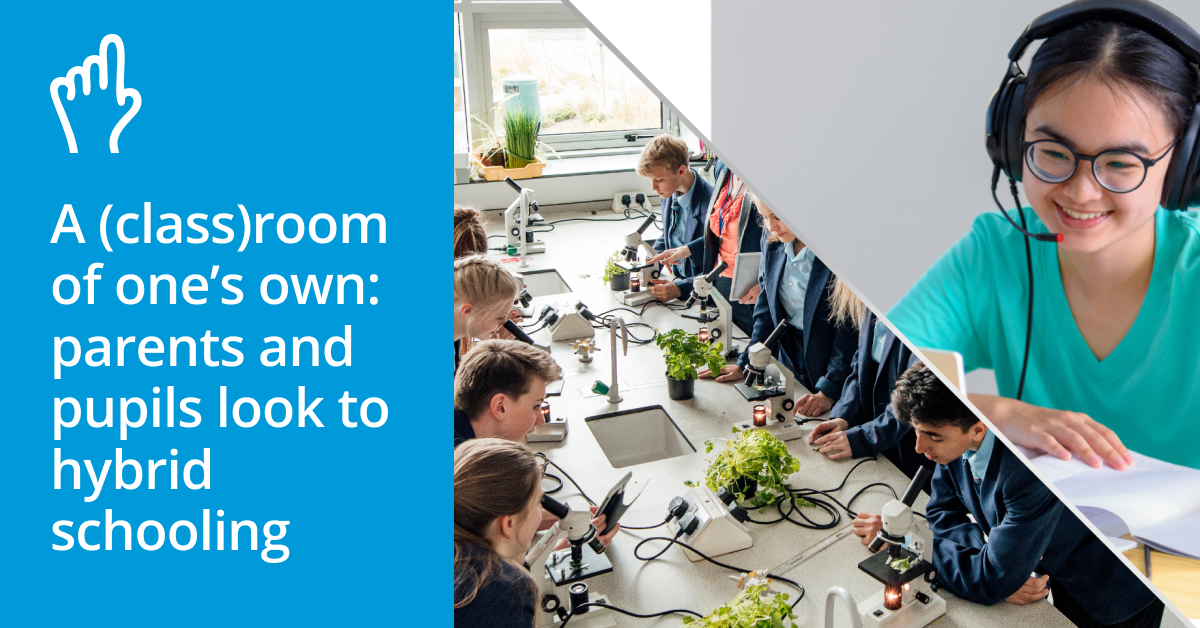We all need a little help at the start of the school year, none more so than Year 7s. And we can all agree that 11-year-olds going into secondary haven’t had it easy. Although lockdown learning may be a distant memory for some, issues remain in the long term. It’s not just learning gaps, but issues with learning habits and mental health. Lockdown learning was reliant on parents. Much class time was lost. We now have increasingly stretched budgets, in schools and in children’s homes.
We’ve been asking teachers – and looking at the research – to see what can be done to help Year 7s step (or catch) up academically and we were surprised to learn that it’s often the small things that make the biggest difference.
Learn names as soon as you can
The Times Educational Supplement (Tes) recently cited research showing that the sooner a teacher learns names, the sooner learning begins. Powerful stuff. Hearing one’s name not only makes us sit up and take notice, it also makes us more receptive and trusting. This is even the case when children are learning on screens and it’s a computer rather than a human using their name. (Another boost, arguably, for the possibilities of edtech.)
This is all well and good, but what about learning those names in the first place? Most teachers have well over 100 pupils every year.
Many teachers swear by the following tried-and-trusted methods:
- Name cards on desks
- Alphabetical seating plans (for first names)
- Taking the register at the start of every lesson, even if it isn’t a requirement
- Activities such as getting pupils to list alliterative adjectives to match their names
And some teachers we asked admitted to privately making up their own names, mnemonics, or word associations: Jolly Jane, Peter Particular etc. – the more peculiar, the better – or more memorable! Others tell us they repeat a child’s name in their head while the child is reading out loud or answering a question.
As with all learning, practice makes permanent. Good old-fashioned repetition works for many: in other words, using names repeatedly while name cards are on desks in those early lessons.
Oh, and in another win for tech, many teachers make the most of school databases, where they can find pupil photographs for quick recapping before and after lessons.
Build relationships from the outset
Don’t smile till Christmas? The teachers we spoke to gave short shrift to this advice.
Year 7s will have enjoyed rather different relationships at junior school, where they were perhaps taught by just one teacher in one classroom, in the main. Secondary school is a shock to the system, with longer journeys across bigger school grounds to meet a multitude of teachers. They can feel a little lost, especially in the early weeks.
Teachers tell us it’s important to be seen as an ally. Get to know pupils as individuals. Take time to meet and greet them when they arrive to lessons. Pick up on conversations from last lesson. Address each pupil by name. Ask them how they are. Small talk is not to be underestimated: it oils the wheels of (classroom) communication.
Furthermore, studies show that strong relationships and student engagement go hand in hand.
Give clear, step-by-step instructions
Teachers we spoke to highlighted the importance of taking great care with instructions and explanations. Never make assumptions. Adults often suffer from the curse of knowledge. This is where we assume someone knows what we know and understands every word we use. This can cause confusion in the classroom. What’s blindingly obvious to you in your 20s, 30s or 60s may well flummox an eleven-year-old.
Year 7s often need instructions spelling out: “Yes, when you get to the end of the page, do turn the page over and continue writing on the next page!”
And avoid giving too many instructions – or too much information – all in one go.
Cognitive overload is a situation where the teacher gives too much information or too many tasks to learners simultaneously, resulting in the learner being unable to process this information.
The science says that teachers should base new learning on old.
Furthermore, teachers recommend being clear in one’s own mind about learning objectives. They say that you don’t have to state them explicitly to the class; you should, however, decide what you want pupils to learn at any one time. For example, you want a group to consolidate their learning on glaciation. To that end, you ask them to create PowerPoint presentations, little realising that they’re not yet fluent with the tech. You then find that they spend all their time and attention on animations and transitions rather than arêtes and depositions! They’ve had too many new things to think about.
Make time for icebreakers, warm-ups, and interleaving
Interleaving means mixing things up, and not spending all your time on one topic or type of learning. So, a music teacher may divide up a lesson into theory, scales, sight-reading, repertoire piece.
Time and time again, teachers tell us learning any subject is a marathon, not a sprint – and warm-up activities are all part of the process.
The following are popular:
- puzzles
- crosswords
- brainteasers
- wordles, word searches, or word scrambles
- intriguing pictures, or cropped close-ups
- riddles or mysteries: “what’s in this paper bag…?”
Seizing their attention from the get-go primes young pupils for lengthier activities and breaks up long lessons.
Make the most of edtech where appropriate
Retrieval practice remains a hot topic, with continuing research on best practice. It makes the case that rather than mere rereading of material, active recall is a better way to embed new learning to memory.
For more on its efficacy, you may like to read the following.
A Systematic Review of (Classroom) Retrieval Practice – TeacherToolkit
In your own classroom practice, you’ll find quizzing apps are perfect for testing and consolidating knowledge. There’s so much out there. You’ll have heard of Kahoot! and Quizlet, but ask colleagues what’s working for them.
Today’s teachers are expert curators of the best online resources. Younger pupils may well feel overwhelmed with the amount of new content and the speed with which it comes in Year 7. Experienced practitioners know to point pupils in the direction of the best teachers on YouTube or TikTok. Flipping the classroom is nothing new. Outsource some of the lecturing and explaining suits everyone. Pupils can check their understanding at home, at a pace which suits them. English teachers, for instance, are happy to call on Mr Bruff to help out with advice and explanations. His videos, at the time of writing, have now achieved over 60 million views across 212 different nations.
Digital textbooks also help, of course. Our teachers like to highlight and bookmark key passages, effectively paring down content, to differentiate and make hefty textbooks more accessible. Pupils tell us they’re lighter to carry, too – and don’t get left at home!
Final thoughts
It’s often the case that headteachers make time in their busy timetable to teach this year group, and the teachers we spoke to felt it was a real pleasure and privilege to teach Year 7s. Forging a close bond with them, when they’re at this crucial stage, is a worthy investment which pays dividends in the long term. Seeing them progress and grow through the school and, eventually, come out the other side as confident and mature young adults is what many teachers cite as one of the greatest joys of teaching.
Further reading
Make it Stick by Henry L. Roediger III, Mark A. McDaniel, and Peter C Brown
Why Don’t Students Like School?: A Cognitive Scientist Answers Questions About How the Mind Works and What It Means for the Classroom by Daniel T. Willingham
How We Learn: The Surprising Truth About When, Where, and Why It Happens by Benedict Carey





